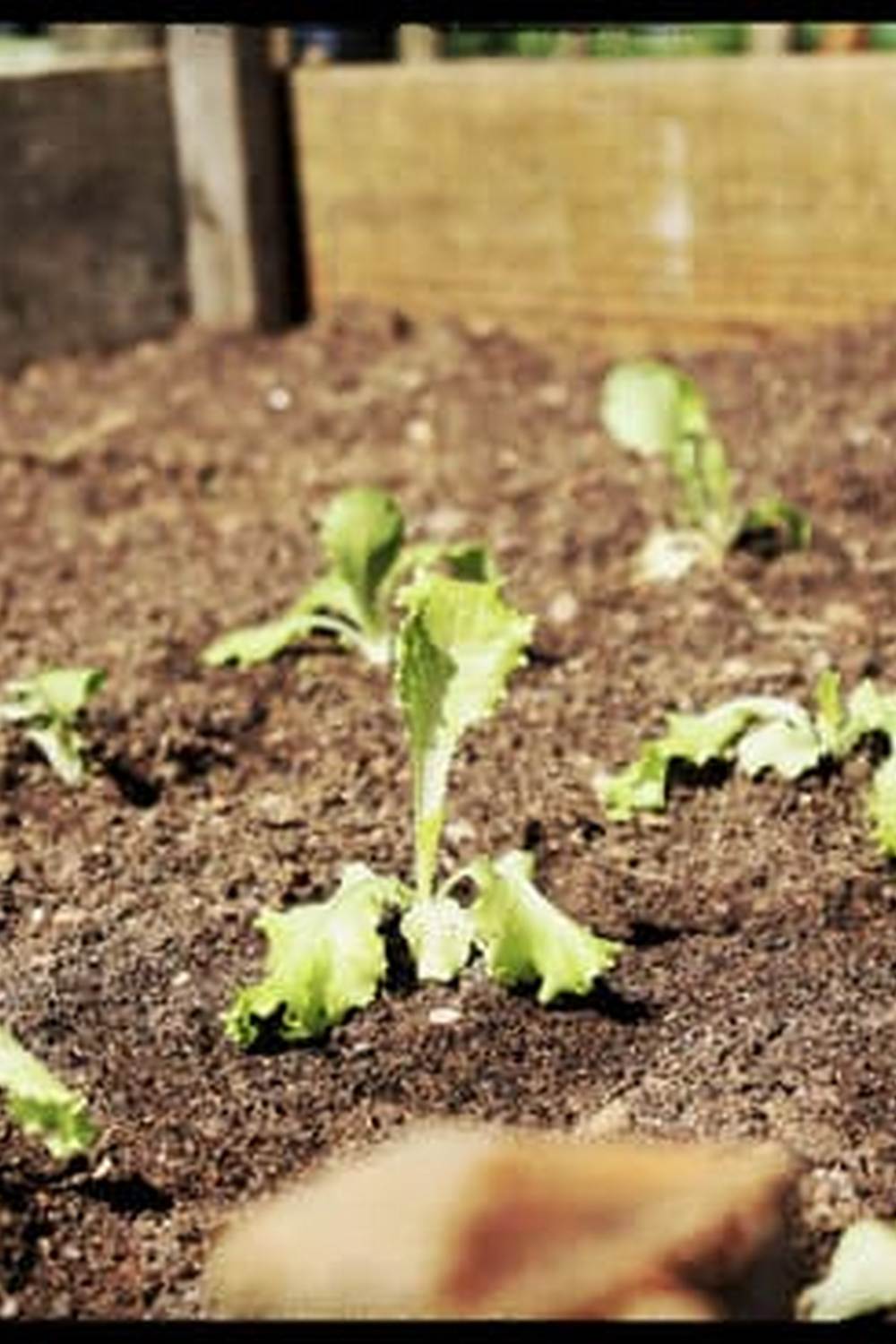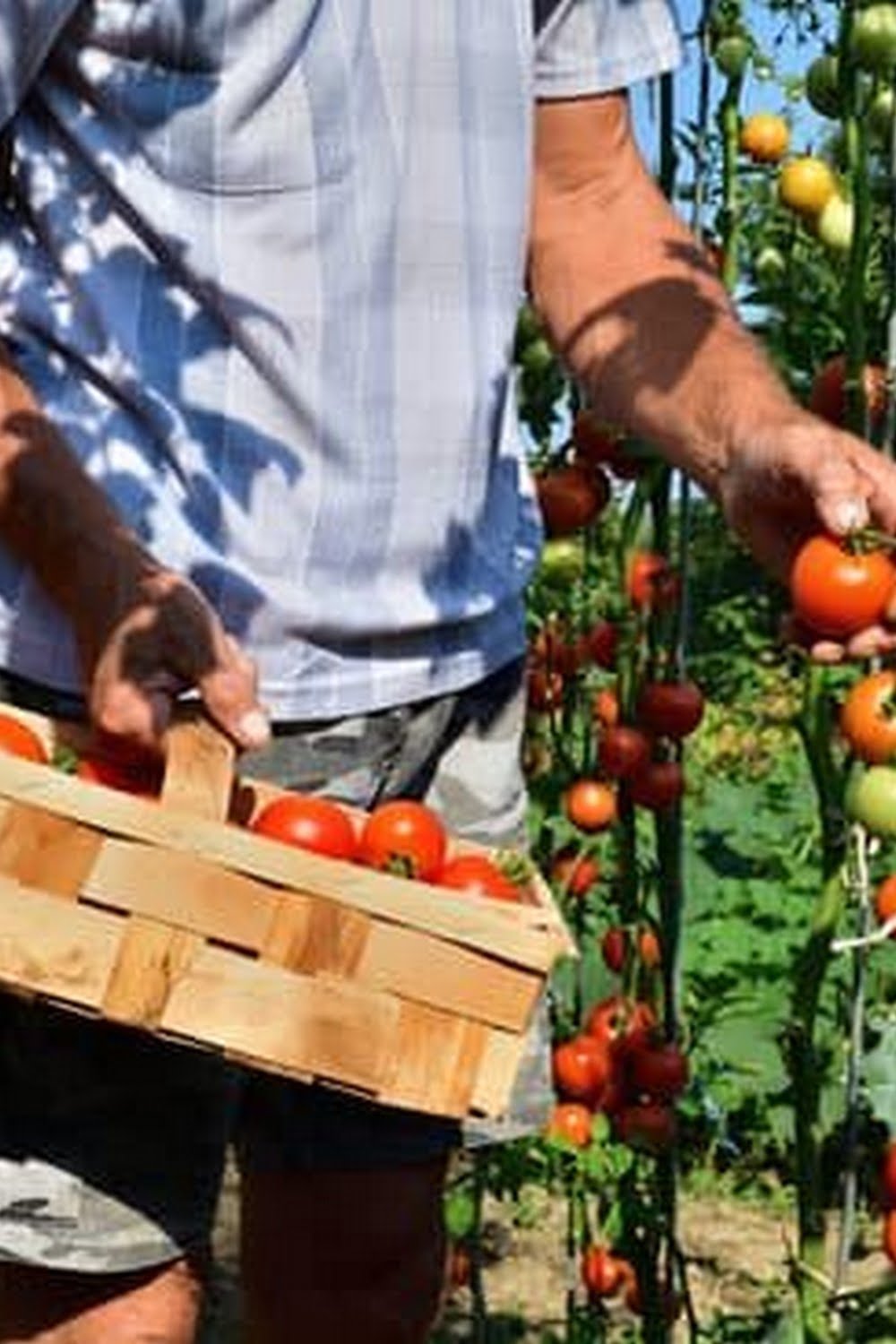Raised bed vegetable gardening has become increasingly popular among gardeners due to its numerous benefits, including better soil quality and drainage. One key factor in successful raised bed gardening is the type of soil used. Selecting the right soil for raised bed vegetable gardening can make a significant difference in the health and yield of your plants.
When choosing soil for raised beds, it’s important to consider factors such as nutrient content, drainage capabilities, and structure. The ideal soil should be well-draining to prevent waterlogging, while also retaining enough moisture for plant roots to thrive. Additionally, a balanced mix of organic matter and minerals is essential for providing the necessary nutrients for plant growth.
To ensure optimal soil quality in raised beds, regular testing and evaluation are crucial. By understanding the composition of your soil, you can make informed decisions on which amendments to add for improved fertility and structure. Proper maintenance practices such as mulching and crop rotation can also help maintain healthy soil conditions over time. With the right soil management techniques in place, you can maximize the yield of your vegetable crops in raised beds.
Benefits of Using Raised Beds for Vegetables
Raised bed vegetable gardening has become a popular choice for many gardeners due to its numerous benefits. One of the main advantages of using raised beds for vegetables is the improved soil quality that can be achieved.
By filling raised beds with a custom mix of soil, gardeners have greater control over the composition and structure of the soil, leading to healthier and more productive plants. This is particularly beneficial for areas with poor soil or limited space for traditional in-ground gardening.
Additionally, raised beds offer better drainage compared to traditional garden plots, preventing waterlogging and root rot in vegetable plants. The increased depth of soil in raised beds also allows for better root development and easier access for plant maintenance. In areas where the native soil is contaminated or unsuitable for growing vegetables, raised beds provide a clean and controlled environment for successful gardening.
Furthermore, the elevated design of raised beds can help to reduce weed growth and minimize soil compaction. With less need for tilling and weeding, gardeners can save time and effort while maintaining a neat and organized garden space. Overall, the benefits of using raised beds for vegetable gardening extend beyond just convenience and aesthetics-they contribute to healthy plant growth and bountiful harvests, making them a popular choice among both beginner and experienced gardeners.
Choosing the Right Soil for Raised Beds
Raised bed vegetable gardening is a popular method among gardeners for growing fruits, vegetables, and flowers in a controlled environment. One of the key factors to consider when setting up raised beds is choosing the right soil for optimal plant growth. The soil used in raised beds should be light, well-draining, nutrient-rich, and loose enough to promote healthy root development.
When selecting soil for raised bed vegetable gardening, it’s essential to avoid using topsoil from your yard, as it may be compacted and lacking in nutrients. Instead, opt for a high-quality potting mix or garden soil that is specifically formulated for use in containers or raised beds. These mixes are typically lighter in weight, have good drainage properties, and contain added organic matter to support plant growth.
In addition to using a quality potting mix or garden soil, consider blending in compost or aged manure to further enrich the soil in your raised beds. These organic amendments help improve soil structure, retain moisture, enhance nutrient levels, and promote beneficial microbial activity. By ensuring that your raised bed soil is well-balanced and nutrient-dense, you can create an ideal growing environment for your vegetables to thrive.
| Soil Amendments | Benefits |
|---|---|
| Compost | Improves soil structure and adds essential nutrients |
| Aged Manure | Enriches the soil with nutrients and supports beneficial microbes |
| Potting Mix/Garden Soil | Provides a balanced blend of ingredients for optimal plant growth |
Importance of Soil Quality for Vegetable Gardening
When it comes to vegetable gardening in raised beds, the importance of soil quality cannot be overstated. The soil in your raised beds serves as the foundation for healthy plant growth, providing essential nutrients, moisture retention, and proper drainage. Choosing the right soil mix and maintaining its quality is crucial for successful and bountiful harvests.
Optimal Nutrient Levels
One of the key aspects of soil quality for vegetable gardening is ensuring that the soil provides adequate nutrients for plant growth. Vegetables require a balanced supply of essential nutrients such as nitrogen, phosphorus, potassium, calcium, and magnesium. Adding organic matter like compost to your soil mix can help improve nutrient levels and support healthy plant development. Regularly testing your soil to monitor nutrient levels is recommended to make any necessary adjustments.
Proper Soil Structure
The structure of the soil in raised beds also plays a significant role in supporting vegetable growth. Soil that is too compacted can hinder root development and restrict water infiltration and drainage. To improve soil structure, incorporating materials like peat moss or vermiculite can help loosen compacted soil and promote better aeration. Additionally, adding perlite or sand can enhance drainage in heavier clay soils, creating a more favorable growing environment for vegetables.
pH Balance
Another important factor to consider for optimal soil quality in raised bed vegetable gardening is maintaining the proper pH balance. Most vegetables prefer slightly acidic soil with a pH range between 6.0-7.0.
Testing the pH level of your soil and adjusting it if necessary with amendments like lime or sulfur can ensure that plants can effectively absorb nutrients from the soil. Monitoring pH levels regularly can prevent nutrient deficiencies and ensure that your vegetables thrive throughout the growing season.
Types of Soil Amendments for Improved Soil Quality
When it comes to raised bed vegetable gardening, the soil quality plays a crucial role in the success of your crops. One way to improve the soil quality in your raised beds is by incorporating soil amendments. Soil amendments are materials mixed into the soil to enhance its physical properties, fertility, and overall health. There are various types of soil amendments that you can use to improve the quality of the soil in your raised beds.
Organic Matter
Adding organic matter to the soil is one of the most effective ways to improve its structure and fertility. Materials such as compost, aged manure, leaf mold, and kitchen scraps can be used as organic matter amendments. Organic matter helps improve soil drainage, water retention, and nutrient availability for plant roots. It also encourages beneficial microbial activity in the soil.
Mineral Amendments
Mineral amendments are another type of soil amendment that can help improve nutrient levels and pH balance in the soil. Examples of mineral amendments include lime (to raise pH), sulfur (to lower pH), gypsum (to improve drainage), and rock phosphate (for phosphorus). These mineral additives can be beneficial for addressing specific nutrient deficiencies or imbalances in the soil for optimal plant growth.
Cover Crops
Utilizing cover crops as a form of green manure can also help improve soil quality in raised bed vegetable gardening. Cover crops such as clover, rye grass, or vetch can be planted during off-seasons or periods when beds are not being actively used for growing vegetables.
These cover crops help prevent erosion, add organic matter to the soil when they are turned under, and fix nitrogen from the atmosphere into a form plants can utilize. This natural approach can lead to improved tilth, increased biodiversity in the soil ecosystem, and healthier overall plant growth in your raised beds.
By incorporating these types of soil amendments into your raised bed vegetable gardening practices, you can enhance soil quality, provide a more hospitable environment for plant roots, and ultimately boost your crop yields. Experiment with different combinations of organic matter, mineral amendments, and cover crops to create a balanced and fertile growing medium that supports healthy plant growth throughout the growing season.
How to Test and Evaluate Soil in Raised Beds
Raised bed vegetable gardening has become increasingly popular among home gardeners due to its many benefits. One crucial aspect of successful raised bed gardening is choosing the right soil for optimal plant growth and productivity. The soil in raised beds plays a significant role in providing essential nutrients, water retention, and a healthy environment for plant roots to thrive.
When it comes to selecting soil for raised bed vegetable gardening, it is vital to choose a high-quality growing medium that is well-draining and nutrient-rich. A common recommendation is to use a mix of topsoil, compost, and other organic matter like peat moss or coconut coir. This combination provides a good balance of nutrients while ensuring proper drainage and aeration for the plants.
To ensure that the soil in your raised beds is suitable for vegetable gardening, regular testing and evaluation are essential. One practical way to assess your soil’s quality is by conducting simple DIY tests such as the squeeze test, percolation test, or pH testing. These tests can help you determine if your soil needs amendments or adjustments to provide an optimal growing environment for your vegetables.
| Soil Test | Description |
|---|---|
| Squeeze Test | A test that assesses how well soil retains moisture and drains excess water. |
| Percolation Test | An evaluation of how quickly water infiltrates the soil to determine drainage capacity. |
| pH Testing | To measure the acidity or alkalinity levels in the soil which affects nutrient availability. |
Regularly monitoring and evaluating the soil in your raised beds will help you make informed decisions on when to add organic amendments such as compost, aged manure, or fertilizer to maintain optimal nutrient levels. By taking proactive steps to test and improve your soil quality, you can ensure that your raised bed vegetable garden thrives throughout the growing season while maximizing yields of healthy and delicious produce.
Tips for Maintaining Healthy Soil in Raised Beds
Maintaining healthy soil in raised beds is crucial for the success of your vegetable gardening endeavors. By following these tips, you can ensure that your plants have the right nutrients and environment to thrive:
- Regularly monitor moisture levels: It is essential to check the moisture content of the soil in your raised beds regularly. Over-watering can lead to waterlogged soil, which can cause root rot and other issues. On the other hand, under-watering can result in dry, compacted soil that hinders plant growth.
- Implement crop rotation: To prevent depletion of specific nutrients in the soil and reduce the risk of disease buildup, rotate your vegetable crops each season. By rotating crops, you can maintain a balanced nutrient profile in your soil and promote overall soil health.
- Add compost and organic matter: Continuously replenishing your raised bed soil with compost and organic matter is essential for maintaining fertility and improving soil structure. Compost adds valuable nutrients to the soil, while organic matter helps retain moisture and promotes beneficial microbial activity.
By following these tips for maintaining healthy soil in raised beds, you can create an ideal growing environment for your vegetables. Remember that healthy soil leads to healthy plants, which ultimately results in a bountiful harvest. With proper care and attention to your raised bed’s soil quality, you can maximize your vegetable yield season after season.
Common Soil Issues and How to Address Them
When it comes to raised bed vegetable gardening, soil quality plays a crucial role in the success of your crops. However, even with the best soil management practices, gardeners may still encounter common soil issues that can affect plant growth and yield. Here are some common soil problems you might face in your raised beds and how to address them:
1. Compaction: Over time, the soil in raised beds can become compacted, making it difficult for plant roots to access nutrients and water. To combat compaction, regularly loosen the soil by gently turning it over with a garden fork or cultivator. Additionally, adding organic matter such as compost or aged manure can help improve soil structure and prevent compaction.
2. Nutrient Deficiencies: Plants require essential nutrients to thrive, and deficiencies can lead to stunted growth and poor fruit production. To address nutrient deficiencies, consider conducting a soil test to determine which nutrients are lacking. Based on the results, you can supplement the soil with organic fertilizers or amendments like bone meal, fish emulsion, or kelp meal to provide plants with the necessary nutrients.
3. pH Imbalance: Soil pH levels affect nutrient availability to plants, with most vegetables preferring slightly acidic conditions between 6.0-7.0pH. If your raised bed soil is too acidic (low pH) or alkaline (high pH), it can impact plant growth. To correct pH imbalances, you can apply lime to raise pH or elemental sulfur to lower pH gradually over time.
By addressing these common soil issues promptly and effectively in your raised beds, you can ensure optimal growing conditions for your vegetable crops and maximize their yield potential throughout the growing season.
Conclusion
In conclusion, the key to maximizing vegetable yield in raised bed vegetable gardening lies in proper soil management. The success of your garden ultimately depends on the quality of the soil you use. By choosing the right soil for raised bed vegetable gardening and understanding how to improve and maintain its quality, you can ensure that your plants thrive and produce a bountiful harvest.
One of the most important factors to consider when selecting soil for raised bed vegetable gardening is its composition. A well-balanced mix of materials such as compost, peat moss, and vermiculite can provide an ideal growing medium for your plants. Additionally, adding soil amendments like organic fertilizers or lime can help improve soil structure, drainage, and nutrient content, leading to healthier plants and higher yields.
Regularly testing and evaluating the soil in your raised beds is crucial for maintaining optimal growing conditions for your vegetables. By monitoring pH levels, nutrient levels, and overall soil health, you can make informed decisions about when to amend your soil and how to address any potential issues that may arise. With proper care and attention to your soil quality, you can create a thriving environment for your vegetable garden and enjoy a successful harvest year after year.
Frequently Asked Questions
What Is the Best Soil for a Raised Bed Vegetable Garden?
The best soil for a raised bed vegetable garden is a mix of topsoil, compost, and other organic matter. This combination provides the necessary nutrients for your vegetables to thrive and ensures proper drainage to prevent waterlogging.
What Should I Fill My Raised Garden Bed With?
When filling your raised garden bed, it’s important to use a mixture of soil, compost, peat moss, and vermiculite or perlite. This blend promotes healthy root growth, provides essential nutrients for your plants, retains moisture, and helps with drainage – creating an ideal environment for your garden.
What Is the Best Soil Mix for Tomatoes in Raised Beds?
The best soil mix for tomatoes in raised beds is one that is well-draining, nutrient-rich, and slightly acidic. A blend of topsoil, compost, well-rotted manure, and additional organic matter like coconut coir can provide the right conditions for tomatoes to develop strong roots and produce bountiful fruit.
Ensuring proper pH levels will also help prevent issues like blossom end rot in tomato plants.

If you’re looking to get into vegetable gardening, or are just looking for some tips on how to make your current garden better, then you’ve come to the right place! My name is Ethel and I have been gardening for years. In this blog, I’m going to share with you some of my best tips on how to create a successful vegetable garden.





